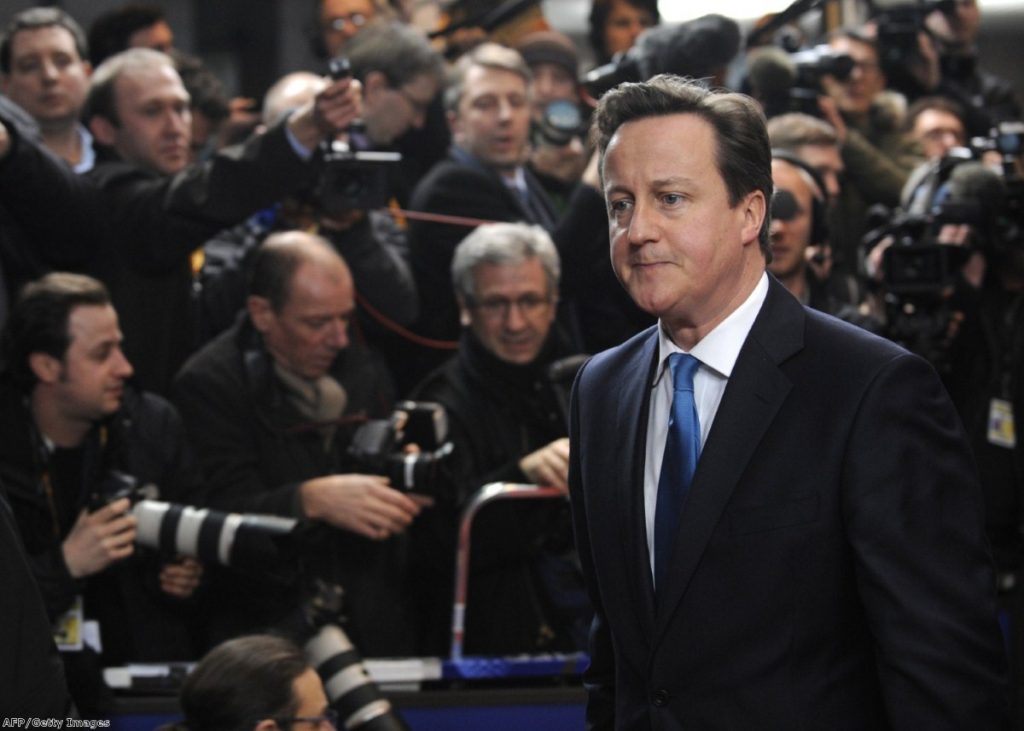‘A long way to go’: EU budget ordeal underway
David Cameron faces a tough challenge today as he begins Britain's attempt to save its rebate and prevent the EU budget rising.
The prime minister and his negotiating team are in Brussels for the first of a three-day summit aimed at settling the EU's spending plans.
The UK is aiming to prevent the EU budget increasing in real-terms as well as preserve Britain's rebate, which in 2011 meant the UK's contribution was 7.3 billion euros instead of 10.9 billion euros.


Seventeen member states are net recipients of the EU budget, meaning they are keen to see the total amount increase.
But Cameron, who suffered a defeat in the Commons on the issue when MPs demanded Britain call for a real-terms cut in a non-binding vote, has been forced to promise to veto any overall hike.
Stephen Tindale of the Centre for European Reform thinktank told politics.co.uk in a podcast on the likely dynamic of the negotiations: "The fact he was defeated and in some ways humiliated by parliament has made him talk tough in the media – and that will not help him achieve his objectives.
"Agreement this month is pretty unlikely because there are enormous differences between the member states. So the negotiations will probably drag on into next year."
Richard Ottaway, the Conservative chair of the Commons' foreign affairs committee, said: "If we actually pick up our bat and ball and say 'this is where we are, if you don't back us there's going to be real trouble', they won't help.
"This requires diplomacy at the highest level. We need top officials working absolutely flat out using all their skills to try and reach a solution."
British diplomats are expected to argue that it continues to deserve a rebate because the UK gets less from EU subsidies than France, a similar sized economy which receives substantially larger payments under the Common Agricultural Policy.
Arguments about the reallocation of EU resources are likely to generate controversy. Significant reductions in structural funds and the CAP, which both boost the size of Britain's rebate, mean that it will be harder for Cameron to achieve his goal of saving the UK discount.
European Council president Herman Van Rompuy is spending most of today holding one-on-one meetings with individual countries. Cameron's half-hour meeting with Rompuy and European Commission president Jose Manuel Barroso was the first of the day, Downing Street said.
"The prime minister set out our position that while the latest proposals were a step in the right direction they did not go far enough and that we think more can be done to rein in spending," a spokesperson said.
"He also set out the UK's position on the rebate that it was fully justified and we did not support any changes.
"It was clear that there was a long way to go before we had a deal that reflected the difficult decisions being taken by member states."
Van Rompuy is expected to bring forward a new set of proposals this evening or early tomorrow morning in a bid to find agreement. Each member state's negotiating teams will then examine in minute detail the implications of the changes for their respective countries.
The summit is supposed to finish on Saturday, but is broadly expected to over-run into Sunday. If agreement is not reached by the end of the weekend – a distinct possibility – talks will be abandoned and the summit judged a failure.
The summit is different from most European Council meetings. There is no pressure to reach agreement from the markets and it is possible to return to the talks at a later date.

